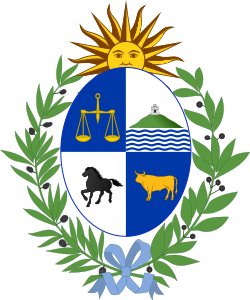| ||
| Immediate re-election of the President | ||
|---|---|---|
| Presidential obligation to resign | ||
 |
|---|
A double referendum was held in Uruguay on 28 November 1971 alongside general elections. [1] Voters were asked whether they approved of two proposals; one to allow presidents to seek immediate re-election for a second term, [1] and one that would force the President to resign if any government ministers were found guilty of violating the law. [2] Both were rejected by voters.